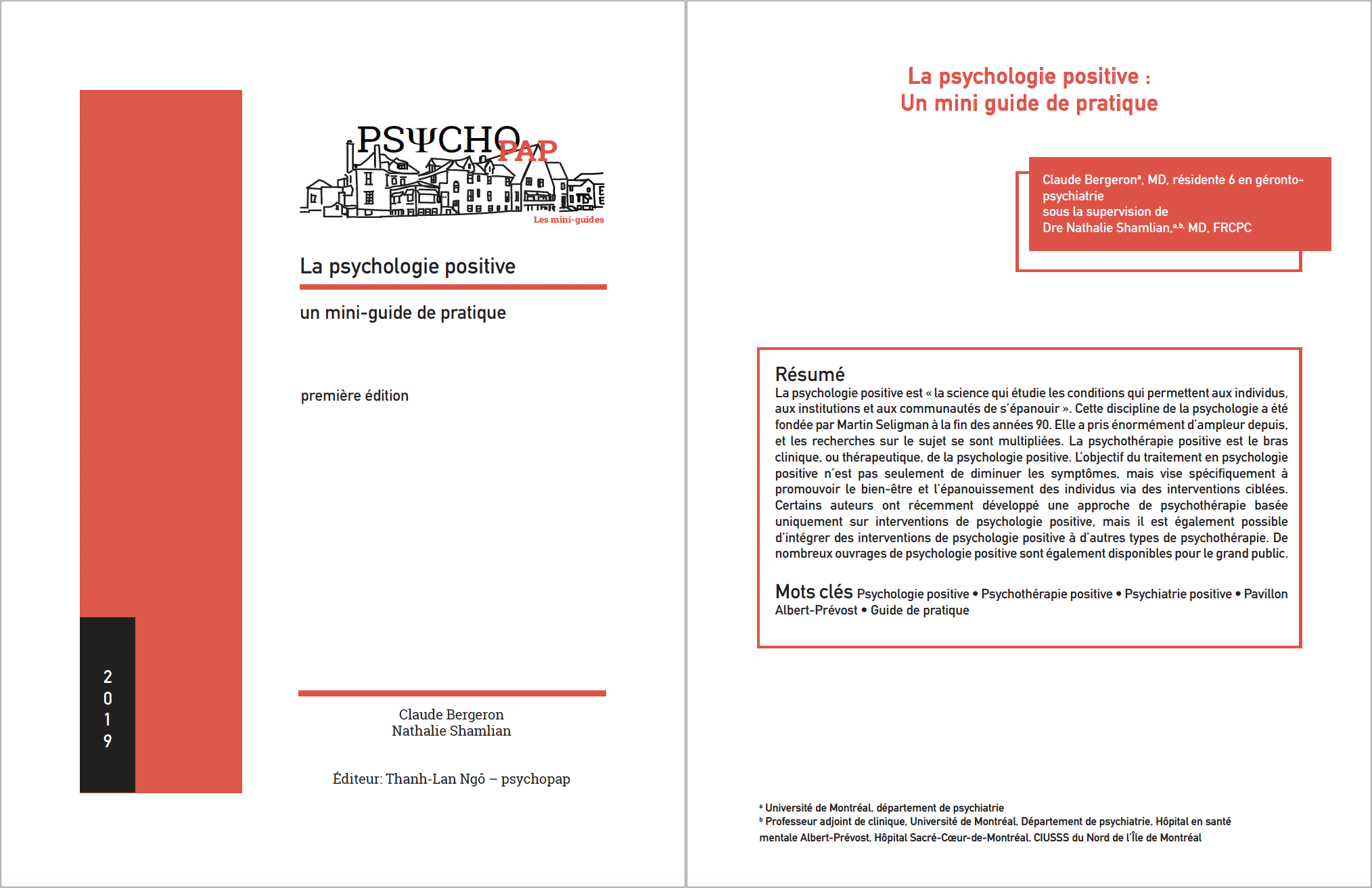There positive psychology positions itself as an essential approach within clinical practice, by offering concrete methods and interventions intended to promote the well-being of patients. Through a range ofinterventions structured, such as the program of Kindness towards oneself (BES), practitioners explore how to strengthen positive emotions, L’optimism and the quality of interpersonal relationships. This discipline focuses not only on the weaknesses of individuals, but also on their strengths, thus making it possible to tend towards a state of optimal health. By integrating research-based approaches into psychology, it is essential for clinicians to familiarize themselves with the various practical applications aimed at improving the daily lives of patients, while promoting innovative therapeutic techniques.
|
IN BRIEF
|
There positive psychology is an approach increasingly recognized in the clinical field, making it possible to improve the well-being of patients by promoting positive emotions and strengthening interpersonal bonds. This article explores the interventions practices from positive psychology, particularly those integrated into programs such as Kindness towards oneself (BES) and the CARE program, in order to strengthen the resilience and better living of individuals.
Origins and principles of positive psychology
There positive psychology developed from psychological research with an emphasis on human strengths and the optimization potential of individuals. Unlike traditional psychology which often focuses on weaknesses and emotional struggles, this approach takes a holistic view by seeking to define clinical practices oriented toward personal growth. It is based on principles such as consistency, L’attention, there relationship and thecommitment.
Practical interventions in clinical therapy
THE interventions in positive psychology are available in different techniques which aim to strengthen mental well-being. Among them, gratitude exercises, mindfulness practices, and the exploration of patients’ personal strengths are commonly implemented. These clinically oriented interventions illustrate how simple activities can have a significant impact on the emotional state and psychological health of individuals.
The CARE program: Coherence, Attention, Relationship, Commitment
The program CARE constitutes an innovative architecture integrating principles of positive psychology into clinical practice. By focusing on commitment patients in activities that provide meaning, this program promotes attention supported and establishes relationships meaningful human experiences, which is essential to creating an environment conducive to therapeutic success. For more details, consult this book on the implementation of positive psychology programs here.
The benefits of positive psychology for patients
The clinical effectiveness of positive psychology is multiple. In fact, it not only promotes resilience, but also contributes to increasing satisfaction at work and in the personal lives of patients. Research shows that these interventions can lead to tangible results in terms of reducing symptoms of psychological disorders and improving interpersonal relationships. To fully understand the role of positive psychology in well-being, it is relevant to learn about the benefits that it brings, visible here.
Ethical considerations and limitations in application
Although positive psychology offers promising tools in a clinical setting, it is essential that practitioners can identify the limitations of this approach. The desire to be a practitioner of positive psychology should not lead to neglect of mental disorders that may require more traditional attention. Professionals must therefore demonstrate ethical vigilance, as highlighted by the ethical principles associated with positive psychology.
Conclusion on innovative approaches to psychology
Positive psychology represents a promising branch of therapeutic techniques that can enrich clinical practices. Achievements such as the CARE program strengthen a practitioner’s ability to support patients towards an optimal state of well-being and allow them to discover often untapped inner resources. To learn more about the practical applications in the medical field relating to this discipline, it may be interesting to look at the impact of digital technologies on general medicine here, or study the economic ramifications in the care sector here.

Introduction to Positive Psychology in a Clinical Setting
There positive psychology emerges as an innovative response to traditional approaches in psychotherapy. With emphasis on the positive emotions, THE relationships interpersonal and well-being, it offers clinicians and their patients a new perspective. This article explores the various practical applications of positive psychology in the clinical setting, highlighting interventions that promote optimal health.
The Foundations of Positive Psychology
Positive psychology is based on the analysis of human strengths and weaknesses. Unlike an approach focused exclusively on pathologies, this discipline focuses on the promotion of abilities and resources intrinsic to individuals. It aims to strengthen the resilience and optimism of patients, thus increasing their quality of life.
Clinical Interventions Based on Self-Kindness
The program of Kindness towards oneself (BES) offers a series of interventions aimed at promoting positive emotions within the therapeutic setting. Clinicians can incorporate practical exercises such as meditation or the logging focused on gratitude. These techniques help improve self-esteem and create an environment conducive to personal reflection.
The CARE Applied Positive Psychology Program
The program CARE is divided into four axes: Consistency, Attention, Relationship And Commitment. In each clinical session, practitioners integrate these components to encourage patients to develop a connection deeper with themselves and those around them. For example, consistency can be reinforced by goals clear and aligned with personal values, thus promoting emotional balance.
Therapeutic Techniques Inspired by Research
Psychologists use various therapeutic techniques from research in positive psychology, such as visualizations or the mindfulness exercises. These approaches promote the activation of positive personality traits, often underexploited in traditional clinical contexts. Additionally, studies show that using these methods improves patients’ social relationships and strengthens their support network.
Ethics and Responsible Practices in Positive Psychology
While integrating principles of positive psychology, clinicians must also be ethical in their practice. It is crucial to recognize that interventions do not replace necessary medical treatment. Practitioners must be attentive to the psychological symptoms of their patients and act with responsibility to ensure their mental health.
Applications of positive psychology within a clinical setting offer a range of possibilities for improving patient well-being. By integrating practical, evidence-based approaches, clinicians help guide their patients toward a path of personal development and of gratification emotional.

There positive psychology is emerging as an essential tool in clinical settings, offering a range of targeted approaches and interventions to improve patient well-being. This discipline focuses not only on solving problems, but also on strengthening the positive aspects of individuals’ lives. By integrating practices of kindness towards oneself, mental health professionals can foster an environment conducive to optimism and resilience.
THE clinical interventions based on positive psychology, such as the program CARE (Consistency, Attention, Relationship, Engagement), aim to create healthy relationships, cultivate positive emotions and engage patients in activities favorable to their personal development. These techniques contribute to better stress management, increased personal satisfaction and the creation of a social support network, all crucial elements for recovery and general well-being.
Research continues to show that these approaches can be integrated into traditional psychotherapeutic practices, improving their effectiveness. By examining both patient strengths and weaknesses, the positive clinical psychology allows holistic support, reflecting the complexity of each individual. This duality offers a more comprehensive way to approach mental health.
Ultimately, adopting positive psychology in clinical settings not only addresses mental disorders more effectively, but also encourages persistent personal development. Psychologists and other mental health professionals are thus better equipped to help patients discover and exploit their own resources, leading them towards a state of optimal health and lasting well-being.













